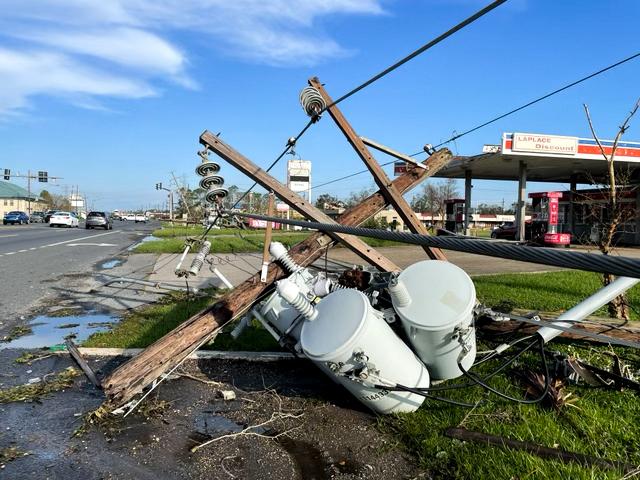The one thing Debbie Russel of LaPlace, Louisiana, remembers about Hurricane Ida is the wind—“It was unreal.”
“The wind was so strong,” she said. “We just got in the hall and prayed. I had my hands over my ears—the wind.”

The one thing Debbie Russel of LaPlace, Louisiana, remembers about Hurricane Ida is the wind—“It was unreal.”
“The wind was so strong,” she said. “We just got in the hall and prayed. I had my hands over my ears—the wind.”